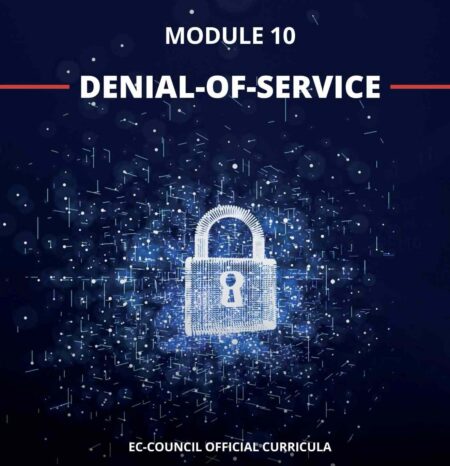Ethical Hacking is identifying weaknesses in computer systems or networks to find out threats, vulnerabilities and exploit its weaknesses to gain access using the same hacking knowledge and tools as a malicious hacker, but in a lawful and legitimate manner (written permission) to assess the security posture of a target system.
An Ethical Hacker, also known as a white-hat hacker. An ethical hacker’s role is similar to that of a penetration tester, but it involves broader duties.
Ethical Hacking has been a part of computing for almost five decades and Ethical Hacking is a very broad discipline, which covers a wide range of topics. Computers have become mandatory to run a successful business. It is not enough to have isolated computer systems, they need to be networked to facilitate communication with external businesses.
The Ethical Hacking Process
Planning
Planning is essential in Ethical Hacking for having a successful project. It provides an opportunity to give critical thought to what needs to be done, allows for goals to be set, and allows for a risk assessment to evaluate how a project should be carried out.
Reconnaissance
Reconnaissance in Ethical Hacking is the search for freely available information to assist in an attack. Read more
Enumeration
Enumeration in Ethical Hacking is also known as network or vulnerability discovery. It is the act of obtaining information that is readily available from the target’s system, applications, and networks. Read more
Vulnerability Analysis
In order to effectively analyze data, an ethical hacker must employ a logical and pragmatic approach. In the vulnerability analysis phase, the collected information is compared with known vulnerabilities in a practical process.
Exploitation
A significant amount of time is spent planning and evaluated in ethical hacking. Of course, all this hacking planning must eventually lead to some form of attack. The exploitation of a system can be as easy as running a small tool or as intricate as a series of complex steps that must be executed in a particular way in order to gain access.
Final Analysis
Although in Ethical Hacking the exploitation phase has a number of checks and validations to ensure success, a final analysis is required to categorize the vulnerabilities of the system in terms of their level of exposure and to assist in the derivation of a mitigation plan. The final analysis phase provides a link between the exploitation phase and the creation of a deliverable.
Deliverables
Deliverables communicate the results of tests in numerous ways. Some deliverables are short and concise, only providing a list of vulnerabilities and how to fix them, while others are long and detailed, providing a list of vulnerabilities with detailed descriptions regarding how they were found, how to exploit them, the implications of having such a vulnerability and how to remedy the situation.
The deliverable phase is a way for an ethical hacker to convey the results of their tests. Recently, ethical hacking has become so commoditized that if a deliverable does not instill fear into the hearts of executives, it could be considered a failure.
Integration
In Ethical Hacking Finally, it essential that there are some means of using the test results for something productive. Often, the deliverable is combined with existing materials, such as risk analysis, security policy, previous test results, and information associated with a security program to enhance mitigation and develop remedies and patches for vulnerabilities.
There are three distinguishing factors that should be considered during the integration of any test results:
Mitigation – In Ethical Hacking If vulnerability beyond acceptable risk was found, then it would need to be fixed. Mitigation of vulnerability can include testing, piloting, implementing, and validating changes to systems.
Defense – Vulnerabilities need to be addressed in a strategic manner in order to minimize future or undetected vulnerabilities. Defense planning is establishing a foundation of security to grow on and ensure long-term success.
Incident Management – In Ethical Hacking the ability to detect, respond, and recover from an attack is essential. Knowing how attacks are made and the potential impacts on the system aid in formulating an incident response plan. The ethical hacking process provides an opportunity for discovering the various weaknesses and attractive avenues of attack of a system that can aid in preventing future attacks.
Who is an Ethical Hacker?
An Ethical Hacker is a skilled professional who has excellent technical knowledge and skills and knows how to identify and exploit vulnerabilities in target systems. Ethical Hacker works with the permission of the owners of systems. An Ethical Hacker must comply with the rules of the target organization or owner and the law of the land and their aim is to assess the security posture of a target organization/system.
Purpose of Ethical Hacking
The purpose of ethical hacking is to improve the security of the network or systems by fixing the vulnerabilities found during testing. Ethical Hacking includes finding and attempting to exploit any vulnerabilities to determine whether unauthorized access or other malicious activities are possible.
Ethical Hackers generally find security exposures in insecure system configurations, known and unknown hardware or software vulnerabilities as well as operational weaknesses in process or technical countermeasures.
An Ethical hacker purpose to protect the privacy of the organization been hacked, Transparently report all the identified weaknesses in the computer system to the organization, Inform hardware and software vendors of the identified weaknesses.
Any organization that has a network connection to the Internet or provides an online service should consider subjecting it to penetration testing conducted by ethical hackers.
Advantages of Ethical Hacking
Most of the benefits of ethical hacking are obvious, but many are overlooked. The Ethical Hacking benefits range from simply preventing malicious hacking to preventing national security breaches. The benefits include:
- To recover lost information, especially in case you lost your password.
- To perform penetration testing to strengthen computer and network security.
- To put adequate preventative measures in place to prevent security breaches.
- To have a computer system that prevents malicious hackers from gaining access.
- Testing Security Measures
- Finding Vulnerable Areas
- Understanding Hacker Techniques
- Preparing for a Hacker Attack
- Fighting against terrorism and national security breaches
- Having a computer system that prevents malicious hackers from gaining access
- Having adequate preventative measures in place to prevent security breaches
How to Obtain An Ethical Hacking Course or Certification?
Once you complete the Penetration Testing and Ethical Hacking training (and any other applicable courses), you may consider moving ahead and obtaining certification. The first step toward Ethical Hacking certification maybe some advanced study on penetration testing and ethical hacking strategies, depending on your experience, skills level, and overall knowledge. You can obtain resources to help you prepare for certification.
Due to the controversy surrounding the profession of ethical hacking, there are a number of ethical hacking certifications as well as IT certifications related to security that can help individuals become ethical hackers are :
- Certified Ethical Hacker (CEH) – This Hacking certificate is Provided by the EC-Council, which is the most sought-after and recognizable certification available in this field.
- Certified Information Systems Auditor (CISA) – This Hacking certification is offered by ISACA, a nonprofit, independent association that advocates for professionals involved in information security, assurance, risk management, and governance.
- Certified information security manager (CISM) – CISM is an advanced certification offered by ISACA that provides validation for individuals who have demonstrated the in-depth knowledge and experience required to develop and manage an enterprise information security program.
- GIAC Security Essentials (GSEC) – This Hacking certification created and administered by the Global Information Assurance Certification organization is geared toward security professionals who want to demonstrate they are qualified for IT systems hands-on roles with respect to security tasks.
While not all ethical hacking positions require that you have certifications, it is a valuable credential to present to new or potential employers, as it shows that you have a fundamental knowledge of how to protect their systems using ethical hacking and penetration testing as the cornerstone of your methodology.
Penetration testing and ethical hacking are skill sets as in-demand as anything else in the Cyber Security industry.








